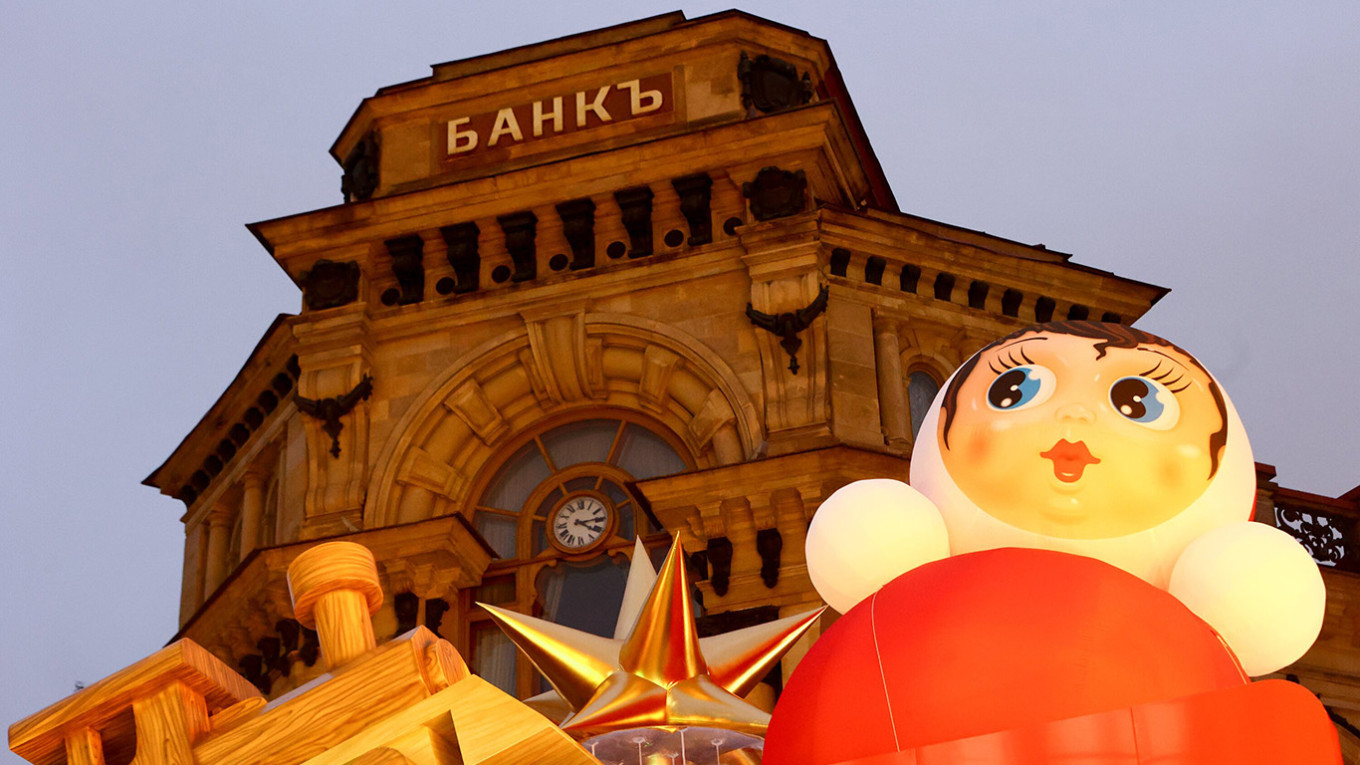A recent report from a state-backed economic think tank indicates that the likelihood of a systemic banking crisis in Russia is increasing.
Analysts from the Center for Macroeconomic Analysis and Short-Term Forecasting (CMASF) caution that, although an outright crisis has not yet occurred, numerous warning signs suggest a significant possibility of one developing.
In their latest assessment, CMASF characterizes the current economic environment as a “resonance” of negative signals, including an uptick in non-performing loans, early signs of depositor withdrawals, and increasing pressures on both businesses and consumers due to elevated interest rates.
The organization is now meticulously monitoring not only warning signs of an impending crisis but also indicators that any future crisis might be prolonged.
CMASF outlines that a systemic banking crisis would entail meeting at least one of three criteria: non-performing loans surpassing 10% of total banking assets, substantial fund withdrawals by depositors, or bank recapitalizations exceeding 2% of the country’s GDP.
Though none of these criteria have yet been fulfilled, the report highlights a persistent rise in underlying risks.
The Central Bank of Russia, which has adopted a stringent monetary policy to address inflation, acknowledges the pressures high interest rates are exerting on the financial system.
Corporate borrowers are facing increasing difficulties in managing their debts, while households are rapidly accumulating bad loans.
The pace of loan issuance is diminishing, and signs of credit strain are beginning to appear at the country’s leading banks, Sberbank and VTB.
In a recent report on financial stability, the Central Bank identified corporate credit risk and consumer over-indebtedness as two of the six main vulnerabilities within the financial system. They noted a significant rise in credit risk costs and a decline in repayment rates, especially among retail borrowers.
To mitigate potential repercussions, the Central Bank has urged banks to provide more lenient loan restructuring options and relaxed reserve requirements for restructured loans starting in July.
Between March and early April, Russian banks restructured loans totaling 2.3 trillion rubles (approximately $25 billion), although this pace has since dropped considerably.
Despite the Central Bank’s assertion that the situation is still manageable, the statistics tell a more intricate story. By the end of April, problematic loans reached 5.2 trillion rubles ($66.2 billion)—3.2 trillion in corporate debt and 2 trillion in retail—accounting for less than 5% of total banking assets.
However, the ratings agency ACRA warns that troubled loans could escalate to 20% of the banking system’s capital by year-end, translating to 3.7 trillion rubles.
Several of Russia’s largest corporations are already experiencing mounting challenges. The Central Bank reports that 13 of the nation’s 78 largest firms are currently earning less in profits than they are obligated to pay in interest—an untenable situation if high interest rates continue.
Nonetheless, the regulatory body contends that most sectors, aside from coal, are adapting to the new monetary conditions. They emphasize that banks are well-capitalized, with reserve buffers covering over 70% of risky loans. As of March, retail lending had a buffer of 1.3 trillion rubles ($16.5 billion).
Russia has navigated banking crises previously, most notably during 2014-2015, when a plunge in oil prices and Western sanctions following the annexation of Crimea triggered a severe financial crisis.
That incident was successfully forecasted by CMASF’s early-warning indicators, which resemble those currently raising alarms.

